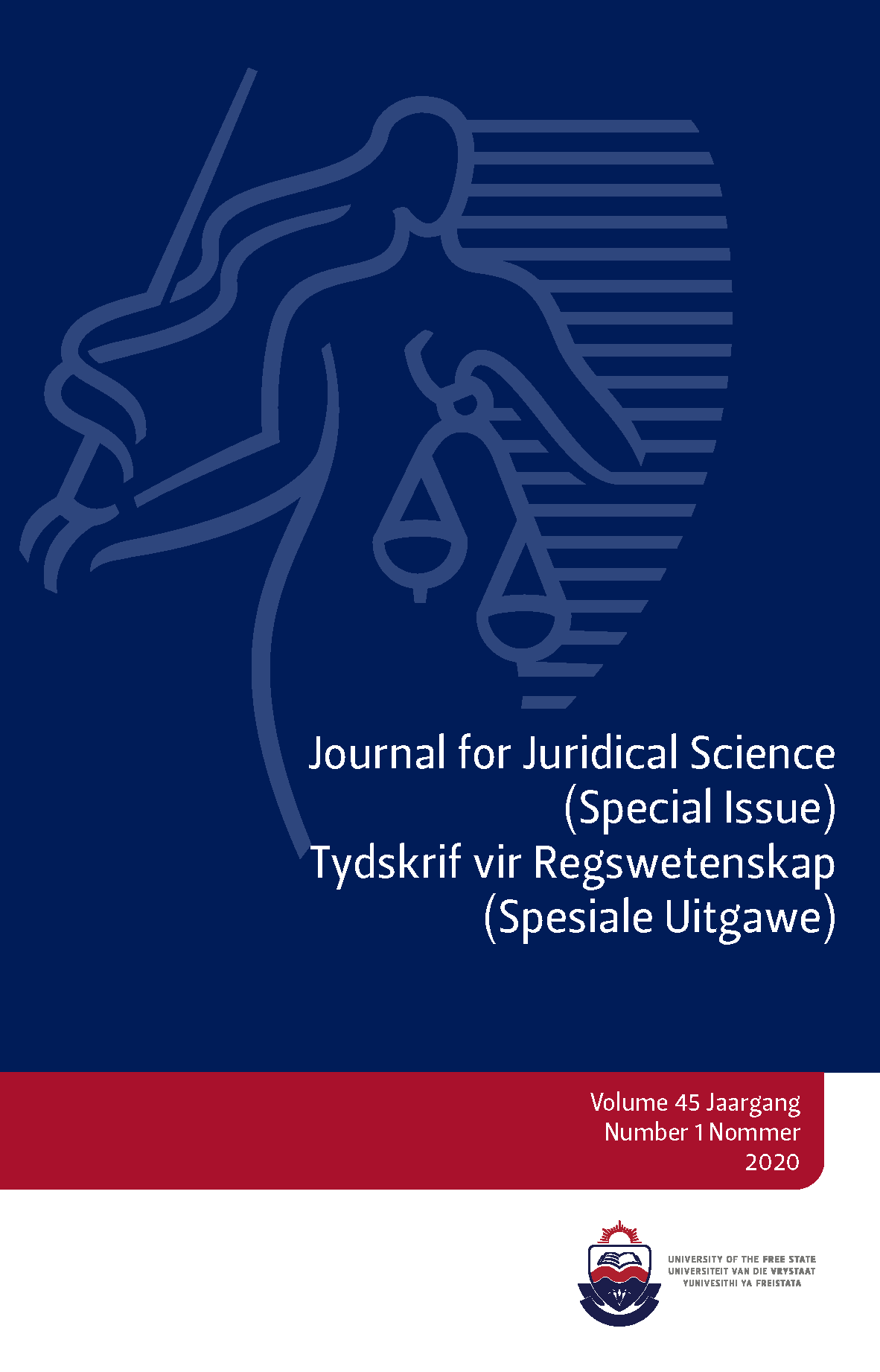The special criminal court in the fight against illicit flows of wealth and the realisation of the right to development in Cameroon: Prospects and challenges
DOI:
https://doi.org/10.18820/24150517/JJS45.i1.7Abstract
Cameroon is party to the African Charter on Human and Peoples’ Rights and as such, is compelled to give effect to the right to development enshrined therein. To this end, it has incorporated the right to development in its Constitution. Aware that the achievement of the right to development necessitates an effective mobilisation of resources by the state, the government has established a number of institutional mechanisms such as the National Anti-Corruption Commission (CONAC), the National Financial Investigations Agency (ANIF), the High State Audit Agency (CONSUPE), and the Special Criminal Court (SCC) in the fight against corruption. Yet, the illicit flows or illegal acquisition, use or transfer of wealth and natural resources from the country through corruption continues to thrive. This article explores the extent to which the SCC, which is the central focus of this article, could protect the country’s wealth and resources from illicit flows. It further examines the extent of illicit flows in Cameroon, the mandate of the SCC, its functioning and its ability to tackle the scourge. The article finds that, in spite of good prospects based on its mandate, the SCC is not able to shield the country’s wealth and natural resources from illicit flows because of its dependence on, and control by the executive arm of the state that pulls the strings of its operation. It calls for an effective separation of powers with a fully independent judiciary if the plundering of wealth and natural resources is to be addressed through the SCC to ensure the enjoyment of the right to development in the country.
Downloads
##submission.downloads##
Published
Issue
Section
License
Copyright (c) 2020 Author(s)

This work is licensed under a Creative Commons Attribution 4.0 International License.




